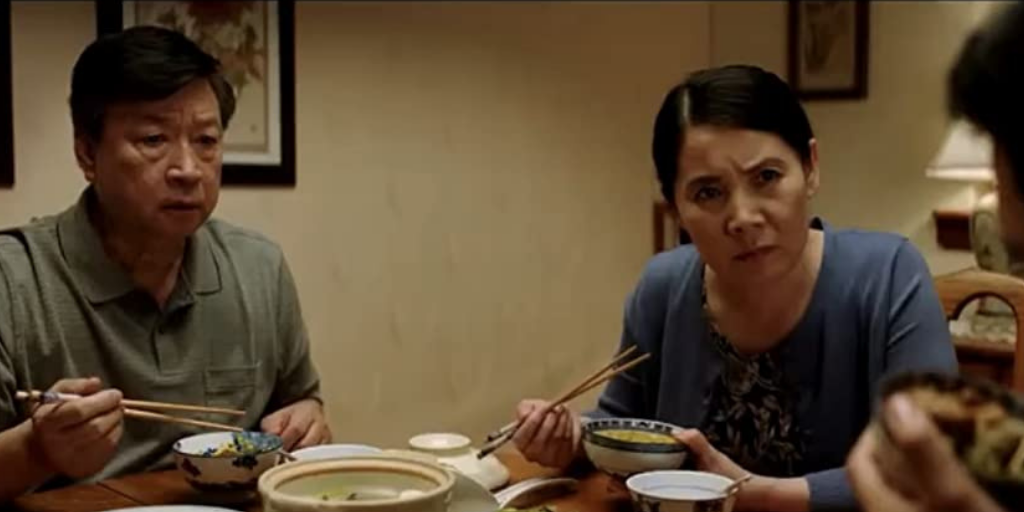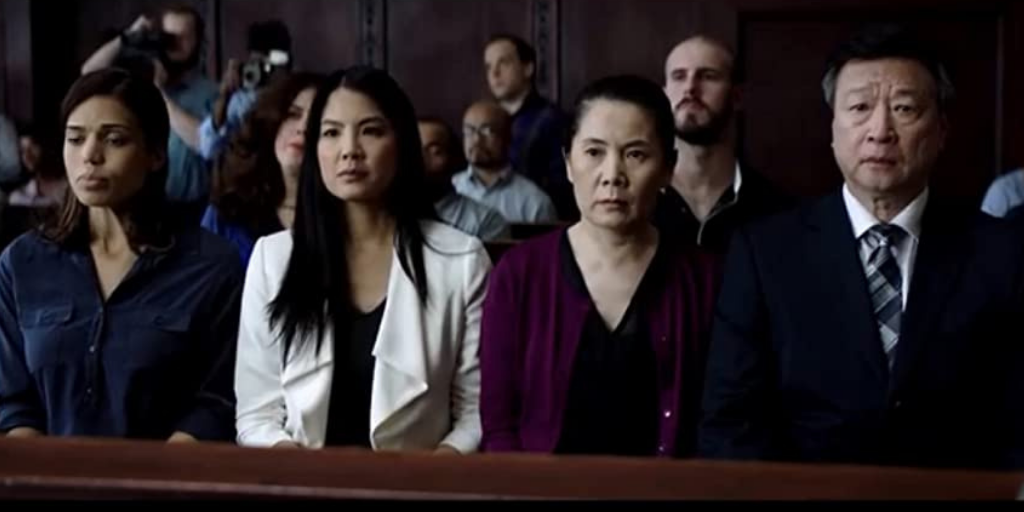Photo credit: Fiona Fu
If you’ve been binge-watching Netflix’s new space drama Away starring Hilary Swank and Josh Charles, you would have seen Fiona Fu, who plays CSNA Head Li Jun. But before she started overseeing space missions, Fu played a mother named May Tan, who’s love for her police officer son Mike (Kenny Leu), couldn’t overcome the debt he has to pay for accidentally killing an unarmed Black man after his gun fires off through an apartment wall.
May’s story is part of the backbone of A Shot Through The Wall, directed by Aimee Long and co-starring Tzi Ma, Lynn Chen, Ciara René, Clifton Davis. , and Michelle Wilson. I was happy to catch up with Fu via email about her role and what it can teach viewers about the necessity of combatting police brutality.
A Shot Through The Wall premiered this year at the Bentonville Film Festival and is currently in post-production. Away is currently streaming on Netflix.
Monique Jones: How did you learn about A Shot Through The Wall? What drew you to the character of May?
Fiona Fu: When I first read the script, I really connected with the character. I felt very close to May, an immigrant mother that just wants the best for her family. I really understood her and the script was full of such great details that it gave me a lot to draw on as an actor.
How did you develop your characterization for May? Did you draw from real-life experiences?
Aimee and I had a lot of discussions about this character. Even from the very first time we met. I think I can relate to a lot of the pain and experiences she has lived in her life. I can connect to that immigrant experience and I have seen many people live with those struggles. I know Chinese mothers like this, very strong-willed and hard working.
The main story-line is about Mike coming to terms with race relations in New York and America in general, as well as his personal guilt over killing an innocent Black man. But the other story-line is the love of a mother, and how a mother’s heart is never the same after a child’s unexpected death. How did you approach how May deals with everything involving her son and his predicament?
Emotionally. I also love all the scenes with the family. It feels like an actual family on screen and I have such good memories from filming that it still warms my heart.

This is your second time acting opposite Tzi Ma as husband and wife. What is it like working with him after Tigertail? (You were great in that film as well; I really enjoyed that film.), Also, how was it working with Kenny Leu and Lynn Chen as your on-screen children?
Tzi is the best. I always love working with him. Kenny and Lynn are also so sweet. We were all living in the same hotel together in New York while we filmed, so we really did become a little family on set. We actually shot the movie before Tigertail. I think Aimee is the first one to pair us together and I hope it won’t be the last!
There’s been a lot of political and social events happening this spring and summer that directly relates to the subject matter in A Shot Through The Wall. This film was made before George Floyd’s murder, but the film drew from the case of ex-NYPD officer Peter Liang, who was convicted of accidentally shooting Akai Gurley in a Brooklyn stairwell. The film also makes commentary on other cases in which unarmed Black men, women and children have been killed by police. With all of the notable police brutality cases that has happened before, during and after the filming of A Shot Through The Wall, especially with the current case of George Floyd, what do you hope A Shot Through The Wall provides for viewers?
It’s so horrible, the tragic shootings of so many people. While our movie is inspired by the Peter Liang case, the story is fictional and has been changed a lot in order to talk about all of these other issues. The systemic racism in America is a real problem and the film tries to explore how it affects Black people and Asian people in similar but also completely different ways. I hope the viewers watch the film and realize that something needs to change. People are dying. We have to do something.
The film draws awareness to the unique relationship Asian and Black communities have with each other in America. There is overlap both groups have when it comes to experiences as The Other, but there can also be suspicion and animosity between members of the two groups because of misinformation and stereotypes. To me, this relationship is showcased in Mike and Candace’s relationship, as well as Mike’s discussion with his therapist about how his parents and older Chinese Americans might view Black Americans. How did you feel about the commentary this film makes about the intricate race relations between Asian Americans, specifically Chinese Americans, and Black Americans?
One of the things I really liked about this script when I first read it is how it deals with all of these subtler themes about race and history. I think the views that this film portrays are very real and very true to life. It doesn’t shy away from showing everything, the good and the bad.

Did you have a favorite moment from the film or a moment that affected you the most?
I think it’s the very last scene… So much said… and all unspoken. If this sounds mysterious, then you’ll just have to watch the film to find out!
What would you say to a viewer who might not understand why stories about police brutality or accidental shootings by police are important?
It’s always important to shine a light on what is going on in our world. These issues exist. It’s important to start this discussion and maybe we can all move a little closer to fixing them.
